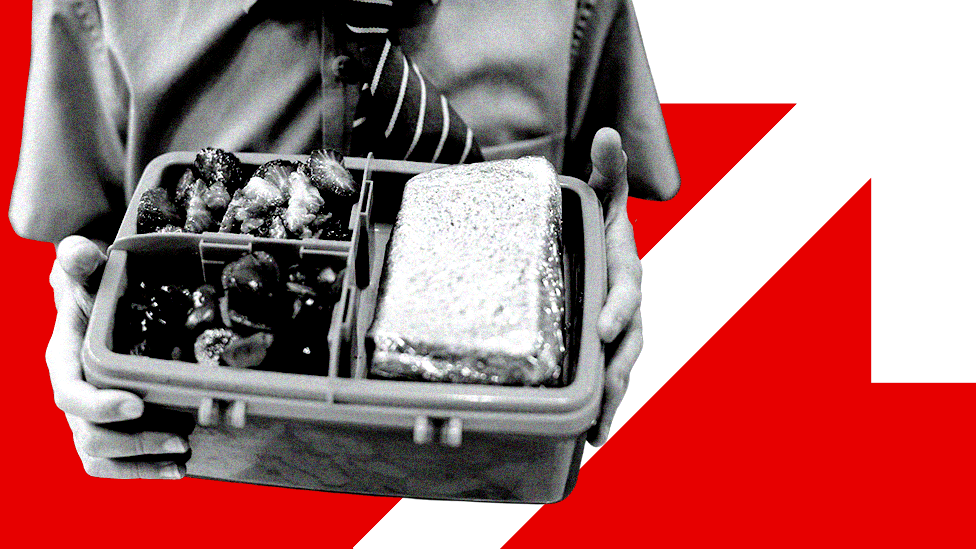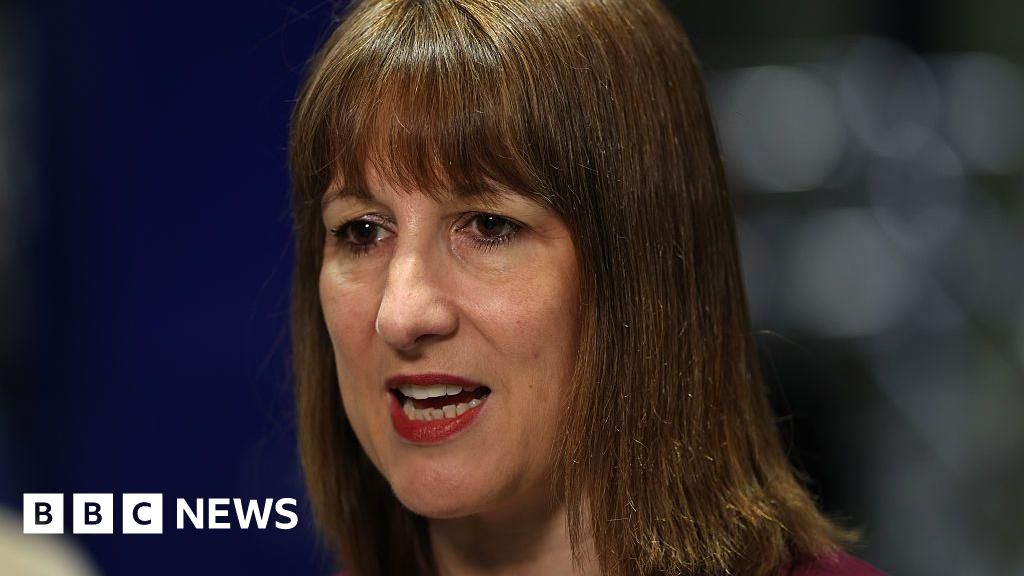ARTICLE AD BOX

By Lora Jones & Lucy Hooker
Business reporters, BBC News
Usually it's cheaper to make lunch at home instead of buying food out and about. But over the last year, staple lunchtime ingredients have gone up in price at the supermarket.
We've gathered some top tips on how to keep costs down when making a packed lunch for work, school or a day trip.
1. Shop around
Caroline Job launched blog and YouTube channel Lunchbox World when coming up with different ideas for her three kids' packed lunches. She enters an identical list of items into different supermarkets' online shopping apps to see which one comes up cheapest, and looks for discount codes.
Although it might take a bit of extra time, Caroline says it has made a big difference as she has noticed the prices going up for different products like cucumbers or eggs.
If you buy your food from town centre convenience stores they might charge more - so you could save money by going to a large supermarket to stock up.
You could also consider swapping your favourite branded snacks for own-label versions.
2. Plan ahead
Caroline also suggests taking a look at what is in the cupboards, fridge or freezer before doing the food shop to make sure you're not doubling up.
"Have a plan as to what meals you're going to prep and what you might want to eat that week for your lunch," she says.
Image source, Caroline Job
Image caption,Caroline says with the cost of living going up, it's key to try and cut down on food waste
She adds that one "game changer" for her was working with best before dates to ensure that food was not being wasted.
"I now rejig my menu for the week as it progresses - if the ham is going off, then I'll use that up today and have a chicken sandwich tomorrow."
Ritesh, a father of two from Hounslow, adds that prepping different items has helped him manage a squeezed budget.
"Our kids love rice pancakes, so we will often prep the mixture the night before and we'll have them for breakfast and combine them with something different for lunch," he says.
3. The freezer is your friend
It can be frustrating when a lunchbox comes back from school at the end of the day completely untouched.
But the freezer can be a big help when it comes to getting a greater variety of food on the menu for the week.
The NHS Better Health website recommends keeping a small selection of different types of bread in the freezer like bagels, pittas and wraps, granary or multigrain. If you pop a piece of greaseproof paper in between each, it's easier to get just one out when it's frozen, Caroline suggests.
And if you're looking for a snack option, frozen fruit is typically cheaper than fresh, especially out of season.
Frozen fruits count towards your five portions of fruit and vegetables a day. There is less waste and you can choose the exact amount you want to use.
4. Make - or grow - your own
With food prices rising at their fastest rate for 45 years, Dr Charlotte Evans - an associate professor at the University of Leeds, specialising in nutritional epidemiology and public health - is concerned the nutritional value of packed lunches might decline as budgets are squeezed.
She argues: "Replacing homemade items with the cheapest, pre-packed snacks like crisps or chocolate biscuits might be the first place people look to make savings."
Although it can be tempting to reach for something that saves on time, pre-prepared options can often be a lot more expensive at the shops and less nutritious.
Dr Evans suggests making up your own a Japanese-inspired, compartmentalised bento box to use up leftover items in the fridge or cupboard.
Image source, Getty Images
"It's a great way to use up lots of little bits - a wrap, some lettuce or carrots, a little bit of bean chilli from the night before."
The British Nutrition Foundation suggests putting a small handful of mixed dried fruits or nuts into reusable food bags or sealed containers to store in the cupboard to make your own easy snack.
And if you have some spare time, growing your own cress for your egg sandwiches could also be a fun project for the family - as well as cheaper than buying it from the supermarket.
5. Bulk up
Batch-cooking is a great way to save on money and time in the long-run, says personal finance expert Rachel Wait.
She says that pasta dishes are easy to make in bulk, along with stews with beans, soups or muffins.
You could just make a little extra for your evening meal and use the leftovers the day after for your lunchbox.
"Cooking with pulses like beans and lentils can be a cheaper alternative to meat and can also help bulk out meals," she points out.
Dr Evans adds that adding extra salad items like lettuce or cucumber to a sandwich could help bring costs down too.
"It can make a sandwich look much more appetising - different textures, colours... It makes it look like a proper sandwich and bulking up on the veg means you're using perhaps a little bit les of the expensive stuff like cheese and ham."

 2 years ago
45
2 years ago
45








 English (US) ·
English (US) ·